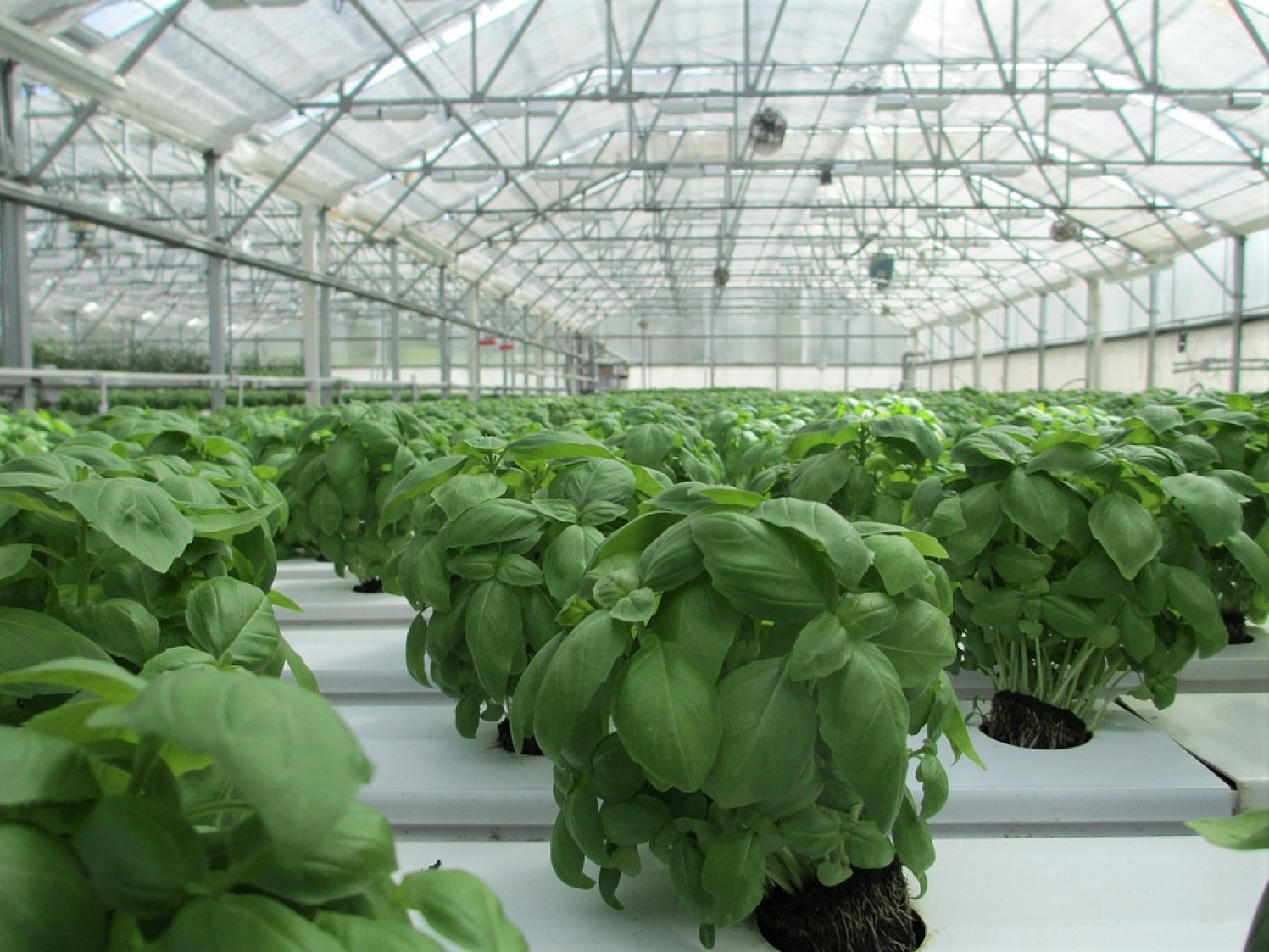While Australia and Qatar are half a world apart, they share some of the same challenges when it comes to producing vegetable crops in what are often harsh environmental conditions. Protected cropping is a potential solution; however, both countries need to improve their commercial greenhouse practices to ensure quality and nutritional potency in the resulting produce.
The aim of the just-commenced ‘Sustainable fertigation for high yield and quality vegetables in protected cropping’ (‘Sustainable fertigation’) project is to identify novel, cost-effective fertigation, nutrient delivery and management approaches to growing greenhouse vegetables that produce increases in produce yield and quality, assisting commercial growers in both Australia and Qatar.
The ‘Sustainable fertigation’ project also involves effective transfer of knowledge and technology between the two nations.
The project will run until the end of August 2022.
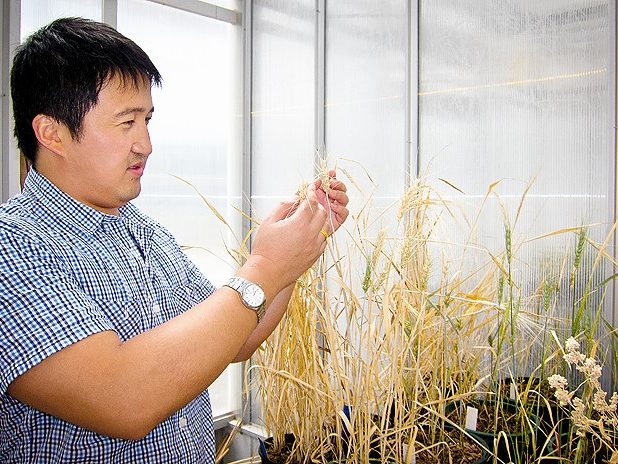
Western Sydney University’s Professor Zhonghua Chen is the project lead. Credit: David Wong
Project objectives
The objectives of the project are to:
- determine the effects of greenhouse fertigation strategies on fruit quality of cucumber and eggplant;
- understand the molecular mechanisms that link high fruit quality to greenhouse fertigation strategies and genotypic variation;
- identify greenhouse fertigation strategies and varieties of cucumber and eggplant that produce better quality fruits using sensory evaluation;
- develop a set of sustainable greenhouse fertigation conditions for cucumber and eggplant in Australia for potential technology and knowledge transfer to Qatar; and
- provide recommendations regarding future engineering solutions.
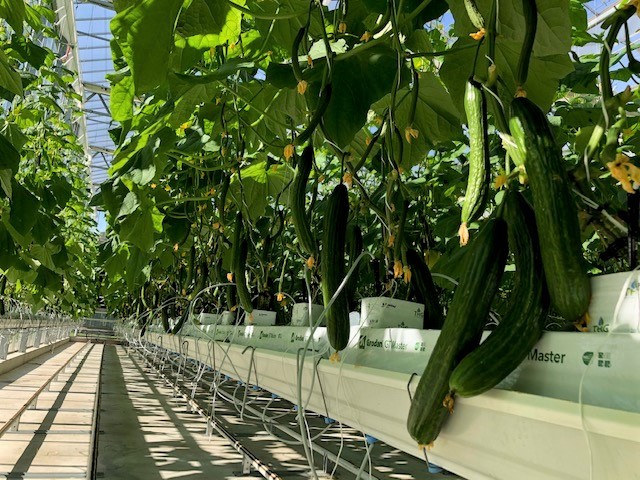
Trial crop growing in the state-of-the-art WSU greenhouse. Credit: Western Sydney University
What does the research entail?
The research team, based at WSU’s National Vegetable Protected Cropping Centre (NVPCC) and led by Professor Zhonghua Chen, will run fertigation trials in the NVPCC’s high-tech experimental greenhouse.
They’ll investigate the impacts of reduced fertiliser use on crop yield and nutritional quality in two high-value fruiting vegetable crops: eggplant and cucumber.
The team will conduct experimental greenhouse trials, laboratory measurements and sensory tests on the effects of fertigation on the quality and nutritional profiles of the resulting crops, using various molecular, postharvest, food science and human nutrition methods.
Through these and comparative trials in Qatar University’s experimental greenhouse, the project team will determine water and fertiliser input levels to guide practices in Qatari greenhouse vegetable production.
“Sustainability will be achieved through cost-effective optimisation of fertigation system operation and management in high-technology greenhouses to produce high-market-value vegetables, such as eggplants and cucumbers, of high nutritional and sensory quality,” says Prof. Chen.
International impacts and collaboration
Once the innovations trialled at WSU have been adopted locally, they’ll be transferred to Qatar through “close collaboration” among the stakeholders.
“Research findings from comparative trials of the innovation in Qatari greenhouses will further improve knowledge and refine protocols developed in Australia for potential adoption beyond the two countries,” Prof. Chen says.
“Regular engagement of the protected cropping industry stakeholders to communicate project findings and disseminate relevant industry resources will further enhance and seed future collaboration between WSU, Qatari partners and the protected cropping industry in both countries,” Prof. Chen says.
“Further international impacts and collaboration are also possible.”
The goal is to develop management practices that improve water and nutrient use efficiency, thereby helping to secure a consistent supply of fresh, nutritious food in both Australia and Qatar.
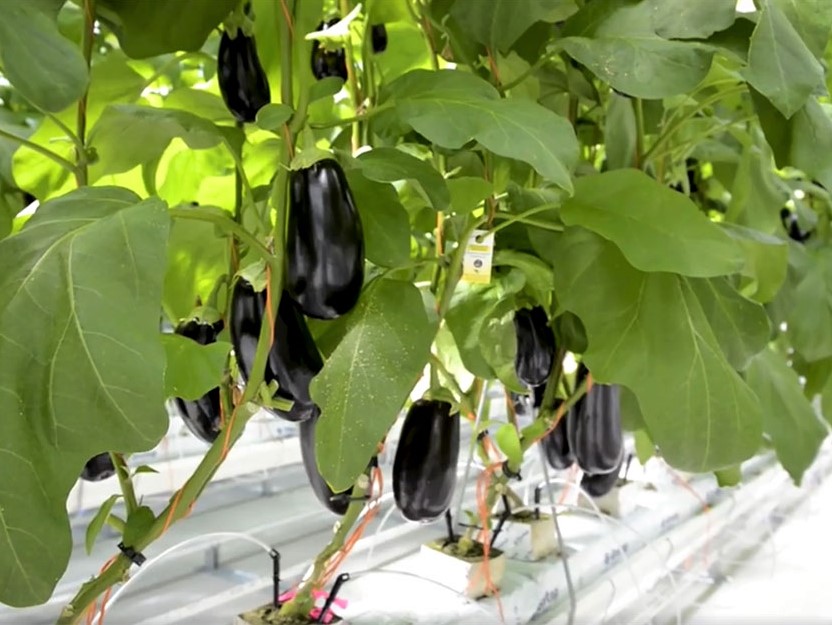
Eggplant trial in WSU’s state-of-the-art experimental glasshouse. Credit: Western Sydney University
Why is the research important?
The project, funded by Qatar University, Western Sydney University and the CRC, is timely for the protected cropping industry in both countries, says Prof. Chen.
“The innovative technologies and research outcomes will help address sustainable production of high-quality vegetables in the Australian and Qatari protected cropping industries – both of which are challenged by ongoing climate events and population growth,” he says.
“These innovations will improve the profitability and investment potential of vegetable production in protected cropping in both countries.
“In addition, they will help to reduce the use of energy and natural resources associated with production.”
“This cost-effective innovation will contribute to the development of sustainable food production in Australia and Qatar through knowledge, technology and management protocol transfer and adaptation,” Prof. Chen says.
“In the long term, Qatar’s reliance on vegetable import can be mitigated.”
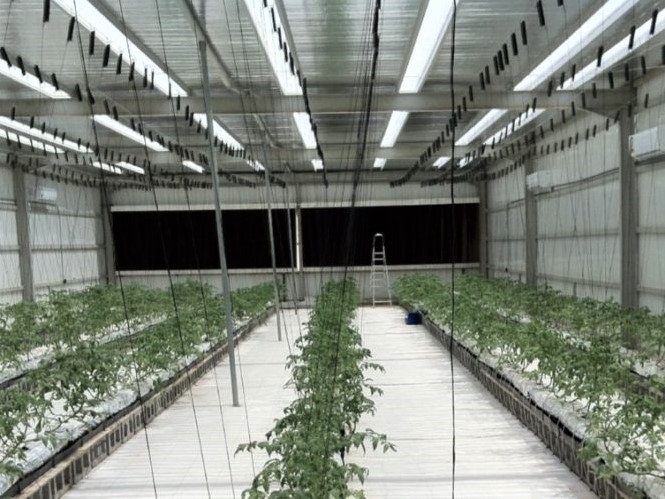
Qatar University developed this innovative thermal-insulated greenhouse. Credit: Qatar University
Real-world benefits
The research will have a number of real-world benefits, Prof. Chen says.
“This new CRC project can benefit Australia through advancing knowledge, technology and management of high-technology greenhouses,” he says. “This is important to shaping a sustainable food system that cost-effectively addresses food security and quality, and environmental challenges.
“The project findings and our collaboration will help Qatar to establish its own sustainable food production system. Using findings from this project, Qatar will build capacity in its own protected cropping industry. This aligns well with Qatar’s ambition to develop its own ‘Food Security Plan’, with less reliance on imports.
“Sustainable production of nutritious, tasty produce will contribute to improved food security, essential for consumer health, in Australia and Qatar,” Prof. Chen says. “In the long term, both countries will benefit – in economic return, food security, consumer health and reduction in food production footprints.”
A fruitful collaboration
Qatar University Associate Professor Talaat Ahmed is excited about the collaboration.
“Qatar and Australia have good relations, assisted by the like-minded interests of the two countries and the determination of their governments to strengthen bonds between the peoples and research institutes of both countries, in all fields, particularly in the food security sector,” he says.
“The activity of the project will facilitate intensive and active interaction between researchers from Western Sydney University and Qatar University. The research will pave the way for more advanced research in the future to address all aspects of agricultural production in Qatar, such as soil and water management and cultivation technology.
“Therefore, this research will help to build strong trust and relationships between the team members from both institutes and will encourage them to strengthen the collaboration through the design and implementation of future projects addressing all the aspects of dryland agriculture in Qatar,” Professor Ahmed says.
“This will be achieved through inclusion of more researchers from both sites, and by building a multidisciplinary research team including other researchers from other institutes from both Qatar University and Western Sydney University.”
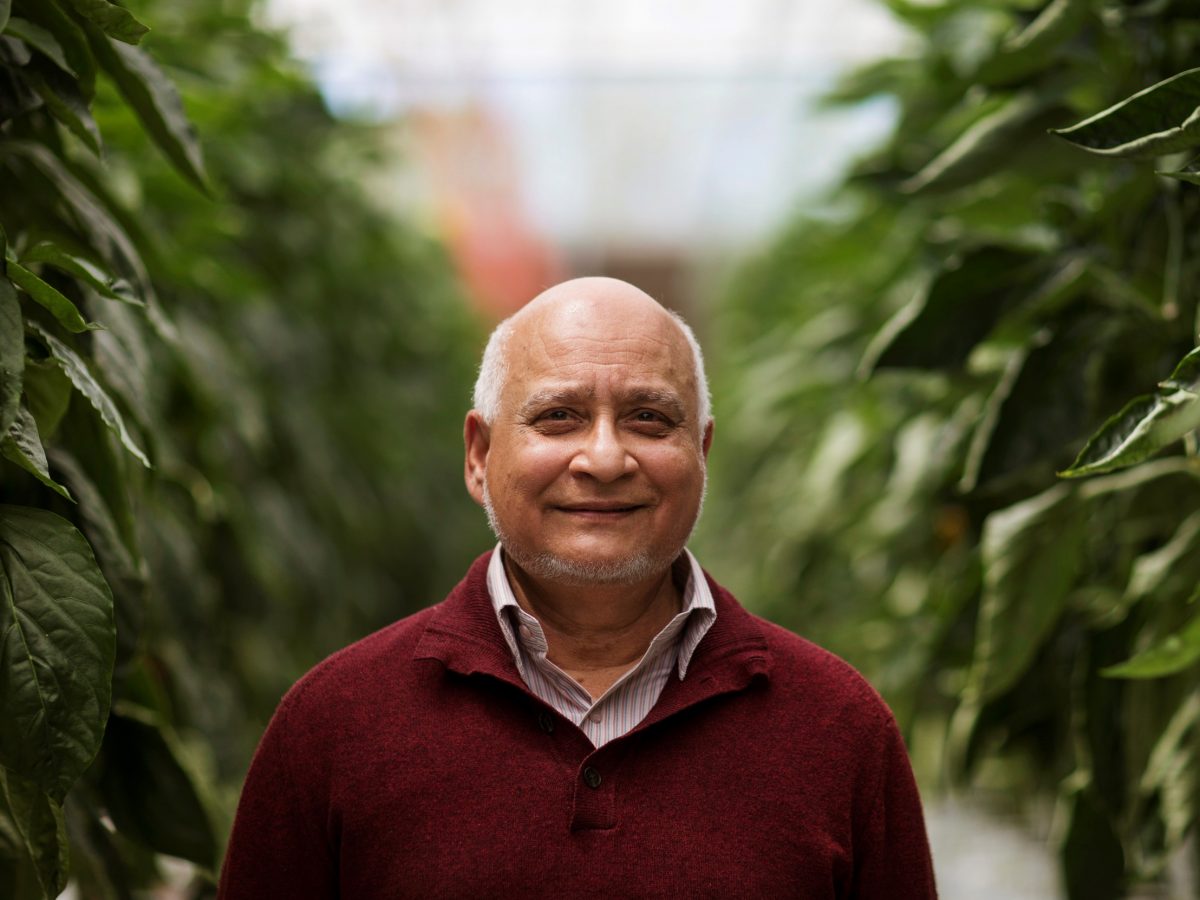
WSU’s Dr Samsul Huda, climate-smart cropping expert (here seen in the university’s experimental greenhouse), is part of the project team. Credit: Western Sydney University.
Project team
Alongside project research lead Professor Chen, the team includes WSU Assoc. Prof. Dr Samsul Huda, climate-smart cropping expert, Professor Brajesh Singh, Professor Vijay Jayasena and Dr Li Li, as well as Qatar University Associate Professor Talaat Ahmed.
About Qatar University
Qatar University is the national institution of higher education in Qatar. It provides high-quality undergraduate and graduate programs that prepare graduates destined to shape the future of Qatar. The university community has diverse and committed faculty who teach and conduct research that addresses relevant local and regional challenges, advances knowledge and contributes actively to addressing the needs and aspirations of society.
Note: In its September eNews, Future Food Systems CRC media erroneously implied that Qatar is part of the UAE. The United Arab Emirates is, of course, a neighbouring country, independent of Qatar. We apologise for this mistake.
Lead image: Inside Qatar University’s greenhouse. Credit: Qatar University


